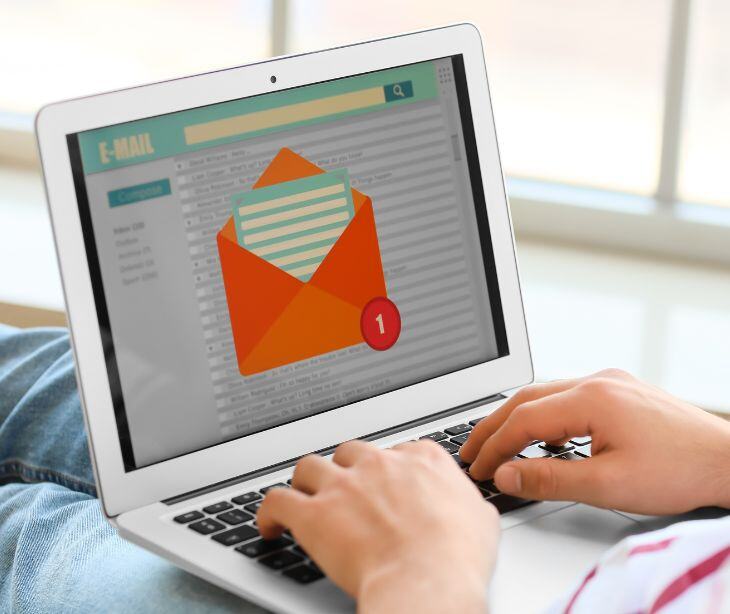
Personal email accounts are not HIPAA compliant. They lack the necessary encryption to protect electronic protected health information (PHI), have weak access controls leading to unauthorized access, and do not have business associate agreements (BAAs) with email providers. BAAs help ensure legal compliance and accountability in handling PHI under HIPAA regulations. These factors collectively pose significant risks of data breaches and noncompliance penalties for healthcare organizations.
Understanding HIPAA requirements for email
HIPAA’s Security Rule mandates that healthcare organizations implement reasonable and appropriate safeguards to ensure the confidentiality, integrity, and availability of electronic PHI. That includes administrative, physical, and technical safeguards against unauthorized access, use, and disclosure. PHI is any information that can identify a patient and relates to their health status, provision of healthcare, or payment for healthcare services, such as names, addresses, social security numbers, and medical records.
According to the HHS, "The Privacy Rule allows covered health care providers to communicate electronically, such as through email, with their patients, provided they apply reasonable safeguards when doing so."
Why personal email accounts fall short
Personal email accounts fail to meet HIPAA compliance due to significant security weaknesses. HIPAA requires PHI to be encrypted both in transit and at rest. However, most personal email services do not offer the necessary level of encryption by default. This lack of encryption leaves emails vulnerable to interception and unauthorized access.
Additionally, HIPAA mandates strict access controls to ensure that only authorized individuals can access PHI. Personal email accounts often lack these robust access controls, increasing the risk of unauthorized access.
Another aspect of HIPAA compliance is the requirement for BAAs. These agreements outline the responsibilities of service providers in protecting PHI and hold them accountable for any breaches. Personal email providers typically do not sign BAAs with individual users, meaning there is no legal framework ensuring the protection of PHI. Without BAAs, healthcare organizations cannot guarantee that their email providers will comply with HIPAA regulations, putting patient information at risk.
Related: How do I make my personal email HIPAA compliant?
Risks associated with using personal email accounts
- Susceptibility to security threats: Personal email accounts are more vulnerable to phishing attacks, hacking, and other security threats.
- Compromise and disclosure: Numerous instances have shown how easily personal email accounts can be compromised, leading to the unauthorized disclosure of sensitive information.
- Lack of auditing capabilities: Personal email accounts do not offer the necessary auditing capabilities to monitor access and modifications to PHI.
- Accountability issues: This lack of accountability can lead to compliance failures and potential penalties.
HIPAA compliant communication alternatives
Healthcare organizations should invest in HIPAA compliant email solutions to ensure compliance. These services provide features like encryption to protect PHI in transit and at rest, robust access controls to restrict PHI access to authorized personnel, and BAAs to outline the responsibilities of the covered entity and the email vendor regarding PHI protection.
Text messaging is another convenient and immediate form of communication especially with Americans checking their phones 144 times a day on average. It must, however, be HIPAA compliant when involving PHI. HIPAA compliant text messaging platforms offer encryption, strong user authentication, and authorization measures, comprehensive audit trails for all communications involving PHI, and BAAs to ensure HIPAA compliance.
Best practices for healthcare organizations
- Create clear policies: Develop clear policies prohibiting the use of personal email for transmitting PHI.
- Communicate and enforce policies: Ensure these policies are effectively communicated to all staff members and consistently enforced.
- Provide regular training: Conduct training sessions on HIPAA regulations and secure communication methods to keep staff updated on best practices and security protocols.
- Continuous education: Emphasize continuous education to help staff stay aware of the importance of protecting PHI and the risks associated with noncompliance.
- Prepare for data breaches: Develop an incident response plan outlining steps for identifying, mitigating, and reporting breaches promptly to minimize damage and ensure compliance with HIPAA’s breach notification requirements.
FAQs
Can encrypted personal email accounts be used for transmitting PHI?
Even if a personal email account is encrypted, it still does not fully meet HIPAA requirements unless a BAA is in place with the email provider, which personal email services typically do not offer.
Read more: Does encrypting an email automatically make it HIPAA compliant?
What are the consequences of not having a BAA with an email provider?
Without a BAA, there is no legal assurance that the email provider will comply with HIPAA regulations, leading to potential security risks and legal liabilities for the healthcare organization.
What role does patient consent play in using email for communication?
Patients must be informed about the risks and provide written consent before PHI can be communicated via email even when using secure email platforms.
Related: How to obtain patient consent for email communication
Subscribe to Paubox Weekly
Every Friday we'll bring you the most important news from Paubox. Our aim is to make you smarter, faster.




